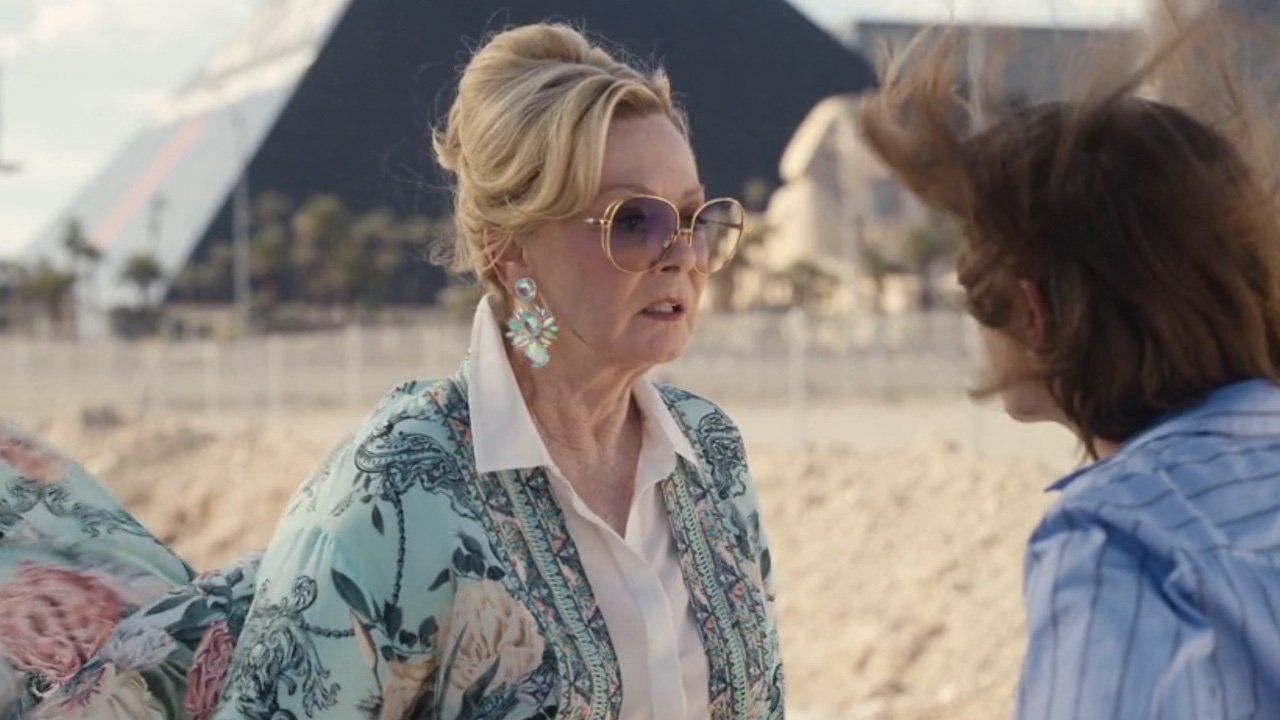This is not a love story. It's a train wreck.
Winter's Tale, the feature directorial debut of Academy Award-winning screenwriter Akiva Goldsman (A Beautiful Mind), fails on so many levels that I hesitate to even call it a movie. It seems almost wholly unaware of the language of filmmaking, offering a nonsensical tale that takes off running without any concern of getting its audience on board. This is the epitome of a vanity project.
Based on the Mark Helprin novel, Winter's Tale follows handsome thief Peter Lake (Colin Farrell) as he makes friends and enemies in 1916 New York. At the story's start, he's on the run from Pearly Soames (Russell Crowe), who is not only a merciless gem-craving crime boss, but also an actual demon hell-bent on making Peter's life miserable. Whether or not Peter understands that he lives in a world of demons and guardian angels--in the form of a flying white horse and a stock Magical Negro--is unclear. He eventually meets the beautiful redhead Beverly Penn (Jessica Brown Findlay), who is key to his destiny, but dying of consumption.
From this point, the story becomes a garbled mess of miracles, magic, and completely incomprehensible leaps in logic. By the third act, so little of Winter’s Tale made actual sense, it felt as if I'd somehow missed 20 minutes of crucial footage. The movie begins with a jumbled back and forth between past and present, and a ponderous voiceover, none of which properly establishes this is a world where angels and demons live amongst us, vying for our souls and warring over miracles! Alternately, Peter runs away from a group of stock thugs, then jumps on a magical horse and off he goes, leaving us in the dust, bewildered. Goldsman, who has been a celebrated writer and producer, completely failed to properly establish the world of his film. So his fantasy tale is ungrounded, making what should feel wondrous instead feel silly.
Suspension of disbelief is a crucial element to a film's success. The audience and the filmmaker essentially make a pact that we'll buy whatever has been put before us as "real" for the movie's run time. However, a filmmaker has to meet us halfway. Star Wars begins with a spaceship flying through the stars, so that we understand this is its world, and how it operates. Winter's Tale offers no such entry point, taking for granted that the audience will follow its leaps into fantasy and fate. But it's impossible to catch up once the story gets going. And so, we're left behind by Goldsman, who takes for granted the importance of ushering us into his magical world.
It's a shame because its clear everyone involved is working hard. Farrell and Findlay are earnest in their love story, he with sparkling eyes and she with a breathy and warm portrayal. Crowe gamely chews the scenery, and even Will Smith -- in a rare supporting role -- is alive with energy. Really the best thing I can say about this movie is that no one is phoning it in, but no one seems aware just how off the mark the movie's is with its execution. Goldsman fails at basic techniques like blocking and shot coverage. So much of the film's actual shooting seems like an afterthought, sacrificed perhaps to the effort of nailing down its dreamy tone. But to what end when, as a whole, it's indecipherable?
Winter's Tale feels strangely un-cinematic, making most scenes seem static while hiding its actors faces in key moments. There's no apparent understanding of how to take pictures to create an engaging story. It is a profound failure that is drenched in good intentions, earnestness and sentimentality. Yet, it’s not nearly as poignant or profound as it sets out to be. In the end, it's a movie so flawed and so burdened with heavy self-import that it is sure to be talked about for years, referenced as, "Well, at least this wasn't as bad as Winter's Tale."
Staff writer at CinemaBlend.












